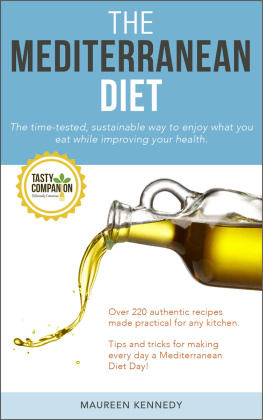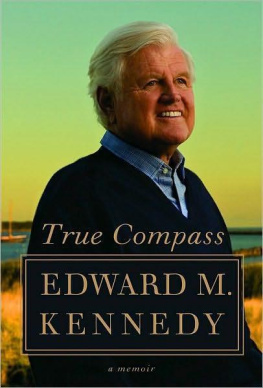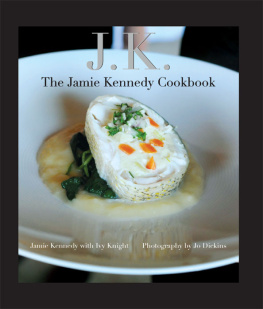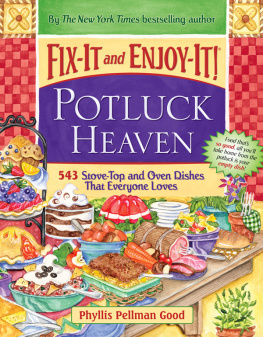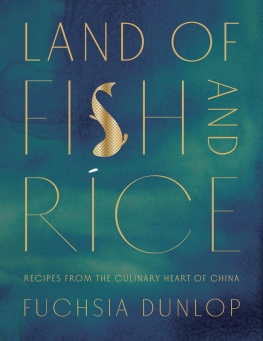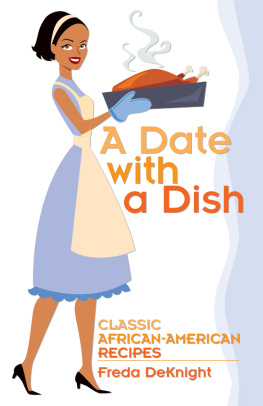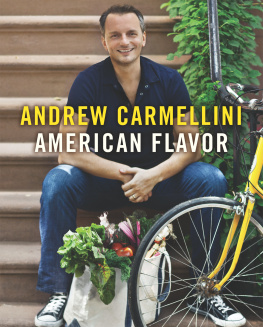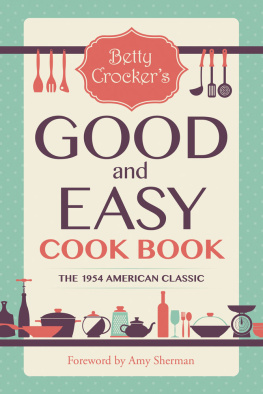ALSO BY DIANA KENNEDY
The Art of Mexican Cooking
The Essential Cuisines of Mexico
My Mexican Kitchen
My Mexico
Oaxaca al Gusto

THE WILLIAM & BETTYE NOWLIN SERIES
in Art, History, and Culture of the Western Hemisphere
Nothing Fancy
RECIPES AND RECOLLECTIONS OF SOUL-SATISFYING FOOD
Diana Kennedy

UNIVERSITY OF TEXAS PRESS
AUSTIN
Copyright 1984, 2016 by Diana Kennedy
All rights reserved
First published by The Dial Press in 1984, reprinted by arrangement with Diana Kennedy
This book is not intended as a medical manual. It contains information that can help readers make informed decisions about their health, but it is not intended as a substitute for professional medical advice. Readers with a health condition are encouraged to seek competent medical care.
The following recipes have been reprinted by permission from HarperCollins Publishers:
Philadelphia Snapper Soup from American Regional Cookery, by Sheila Hibben. Copyright 1946 by Sheila Hibben. Copyright renewed 1974 by Jill Hibben Hellendale. Reprinted by permission of McIntosh and Otis, Inc.
Adaptation of recipe: Veal and Pork Meat Loaf from The Alice B. Toklas Cook Book by Alice B. Toklas. Copyright 1954 by Alice B. Toklas. Copyright renewed 1982 by Edward M. Burns. Foreword copyright 1984 by M.F.K. Fisher. Publishers Note copyright 1984 by Simon Michael Bessie.
Flambed Mangoes from The Essential Cuisines of Mexico: Revised and Updated Throughout, with More Than 30 New Recipes by Diana Kennedy, copyright 2000 by Diana Kennedy. Used by permission of Clarkson Potter/Publishers, an imprint of the Crown Publishing Group, a division of Penguin Random House LLC. All rights reserved.
Pierre Franeys Ragot Toulousaine from The New York Times International Cook Book by Craig Claiborne. Copyright 1971 by The New York Times Company.
Requests for permission to reproduce material from this work should be sent to:
Permissions
University of Texas Press
P.O. Box 7819
Austin, TX 78713-7819
http://utpress.utexas.edu/index.php/rp-form
Library of Congress Cataloging-in-Publication Data
Kennedy, Diana, author.
Nothing fancy : recipes and recollections of soul-satisfying food / Diana Kennedy.
pages cm
Reprint. Originally published: Garden City, N.Y. : Dial Press, 1984.
Includes bibliographical references and index.
ISBN 978-1-4773-0828-8 (cloth : alk. paper)
ISBN 978-1-4773-1009-0 (library e-book)
ISBN 978-1-4773-1010-6 (non-library e-book)
1. Cooking. 2. International cooking. 3. Kennedy, Diana. I. Title.
TX714.K46 2016
641.5926872073dc23
2015033821
doi:10.7560/308288
To my mother, first of all, and to everyone who has helped or taught me along the way,
especially Elizabeth David, Craig Claiborne, Peter Kump, and many others,
and to all the wonderful young American chefs of today
may they not forget the soul food of yesterday.
Contents
BY FRANCES MCCULLOUGH
Foreword
My first meeting with Diana changed both of our lives. I was a young literary editor transplanted from California with a longing for what I assumed was authentic Mexican food, which didnt seem to exist in New York beyond one pricey restaurant. I was eager to meet this British woman anointed by Craig Claiborne, the legendary New York Times food journalist, as the one who would, as Julia Child had recently done for French cooking, bring serious Mexican food to the American home kitchen. Diana did not disappoint; she was animated, witty, full of fascinating stories, and wonderfully mischievous. We spent hours and hours talking that afternoon, with Diana taking little breaks to bring me a taste of this or that, all completely new to me and thrilling. Chinese food was the passion of refined palates of the day1969and Diana explained in detail how Mexican food was every bit as complex and sophisticated and regionally based. Although Id never published a cookbook before, by the end of the afternoon I knew that I wanted to publish this landmark of a book she wanted to write, and we began planning it that very day. For both of us, it would be the beginning of many, many cookbooks to come.
We knew we needed a lot of color photographs of this food most Americans had never seen beforeas well as the chiles, the utensils, the techniques, everything. That became our first roadblockno money for that, we were toldso we resorted to feeding the powers that were. Once every one arrived at Dianas apartment on New Yorks Upper West Side overlooking the Hudson River, the production manager announced, before taking even a sip of his margarita, that he knew exactly what we were up to, and it wouldnt workthere simply wasnt money in the budget for the kind of volume we had in mind. So lets just enjoy ourselves, he said, and get to know a little more about real Mexican cooking. It was a memorable lunch, not only because of the astonishing food, but because by the time dessert was served, the production manager was holding up Dianas many color slides to the window and saying, Well, we have to have THAT one... and THAT one.
Since no one in New York publishing circles had any idea what we were talking about, we resolved to simply advance the cause at the dining table, and Diana cooked many an extraordinary lunch and dinner for the Book of the Month Club editors, the salespeople, various executives, and publicity folk. The high point came at the American Booksellers Association convention in Washington, DC, the year the book The Cuisines of Mexico was published. We hosted a dinner for one hundred hand-chosen booksellers from all over the country, with Diana cooking it all over several days in advance, and several of us driving down from New York with her many cazuelas and other pots and vessels for a properly authentic presentation. It was all stunning. No one who attended that dinner could stop talking about it afterward, and the book became instantly famous.

First demonstration in 1972 for The Cuisines of Mexico at Bloomingdales in New York City.
As it happened, Diana was in the avant-garde of a movement that brought a serious understanding of authentic cuisines to American cooks. The authors of these books were what one New York Times food columnist calls talented amateursPaula Wolfert on Moroccan food and Marcella Hazan on Italian cooking followed shortly. It was as though the world broke open for American cooks, and we all plunged right in up to our elbows.
Exciting as all this was for me, some of my favorite times spent with Diana centered on teatime, which for her always involves proper British tea, fine Indian Darjeeling, brewed perfectly, something freshly baked, and possibly some of her famous preserves. If we were working long hours on the manuscript, Diana might suggest a little somethingwasnt I feeling peckish?and it would often be one of her old favorite British dishes, perfectly rendered. There would also be lively dinner parties, and the fare was as likely to be French as it was Italian or Mexican.
I learned early on that Diana had the finest palate Id ever encountered, and thats still true today. She can taste kosher salt in a dish, or canola oil, or cassia, the cinnamon imposterall excoriated in her My Btes Noires section on page 18. Once when my entire family was visiting her in Mexico, she asked if wed like a salad for dinnerwe would, of courseand returned from her garden with some ravishing greens and in a matter of moments threw together an astoundingly good salad that my children still remember decades later. Her own vinegar, naturally, some lovely oil, and exactly the right amount of salt and pepper, all tossed without an extra drop of dressing.
Next page

